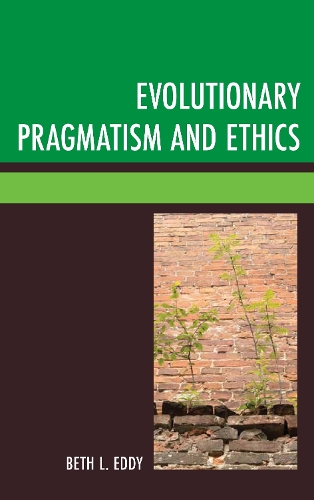
Evolutionary Pragmatism and Ethics
(Hardback)
Publishing Details
Evolutionary Pragmatism and Ethics
By (Author) Beth L. Eddy
Bloomsbury Publishing PLC
Lexington Books
11th November 2015
United States
Classifications
Professional and Scholarly
Non Fiction
Western philosophy from c 1800
170
Physical Properties
Hardback
156
Width 159mm, Height 239mm, Spine 16mm
372g
Description
In the late nineteenth century, culture critics who were readers of Darwins work on evolution pondered what the implications of natural selection might be for human culture, religion and ethics. American pragmatists, by and large, rejected a social Darwinian spin on ethics, economics, and theology in favor of a less determinate humanist version of the ethical implications that emphasized contingency and meliorism. The early arguments between T. H. Huxley and William Sumner over the issues mirrors the contemporary arguments between Stephen Jay Gould and others against the New Atheists determinate interpretation of cultural implications which largely echo the social Darwinists position but in the current language of sociobiology. The work of pragmatists such as William James, George Santayana, Jane Addams, and John Dewey detail an evolutionary perspective that rejects the moral implications of social Darwinism.
Reviews
In Evolutionary Pragmatism and Ethics Beth L. Eddy does American Pragmatism a service by exploring many of the debates concerning evolutionary science prevalent during the formative years of classical Pragmatism.... Eddys concise and readable book focuses mostly on the assimilation of evolutionary theory by John Dewey, Jane Addams, and Pragmatisms interlocutor and ally, George Santayana. Eddy clearly lays out how evolutionary science, in its infancy, was part of the public and philosophic debate.... Eddys book will be of interest not only for those who have an interest in the history of Pragmatism but also for scholars interested in how ideas from the sciences are digested in the complex milieu of society. * Contemporary Pragmatism *
By highlighting the roles of Spencer, Huxley, and others, Eddy provides some much-needed context for pragmatist evolutionary ethics. * Transactions of the Charles S. Peirce Society *
What are the ethical implications of taking Darwin seriously Evolutionary Pragmatism and Ethics is a richly informative history of responses to this question. As a scholar, Eddy brilliantly extends the previous generations attempt to reconfigure the pragmatist canon. As a writer of elegant prose, she is in the company of Midgley and Menand.If you want to understand how American pragmatists such as Dewey, Addams, and Gould differ from social Darwinians and the so-called new atheists, this is where to start. -- Jeffrey Stout, author of Democracy and Tradition
Beth Eddys recovery of the early pragmatists offers a powerful meditation on the ethical implications of pragmatism. The focus is on Chicago, and thus John Dewey and Jane Addams, but the stage is much broader and includes Darwin, T. H. Huxley, Santayana, Spencer, and S. J. Gould. This is intellectual history at its bestfull of philosophical rigor, sophisticated in its grasp of the science and religion milieu throughout the twentieth century, and steeped in the moral life and issues that continue well into the twenty-first century. In Chapters 4 and 5 Eddy gives us the most clear and up-to-date account of the remarkable story of Jane Addams that I know of. -- Nancy Frankenberry, John Phillips Professor of Religion Emerita, Dartmouth College
Author Bio
Beth Eddy is associate professor of philosophy and religion at Worcester Polytechnic Institute.
